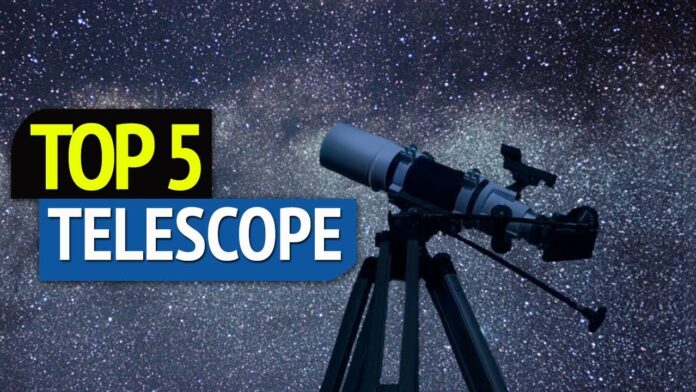
Do you have a budding astronomer, explorer or scientist in your family? Then do not run the risk of destroying their enthusiasm for astronomy by buying the wrong telescope for them. People tend to lose interest in anything complicated, take too long to set up or produce poor results. Hence, it is essential to buy the best telescope for astronomy beginners.
With the help of telescopes, people see distant objects in the sky. Buying that first telescope is an exciting moment, so it’s an excellent idea to have complete information before going out to buy the one for you. To have a look at several alternatives, you can visit High Point Scientific.
Furthermore, it is always good to find out about distant objects in space that are of great interest. Some people primarily want to observe planets, while others are interested in “deep-sky” objects.
Astronomy and space are all about learning. Buying the instrument is something that most people who get interested in astronomy will want to do. There is a wide variety of affordable telescopes for beginners for you to choose from. Read this article to know the five best telescopes for astronomy beginners.
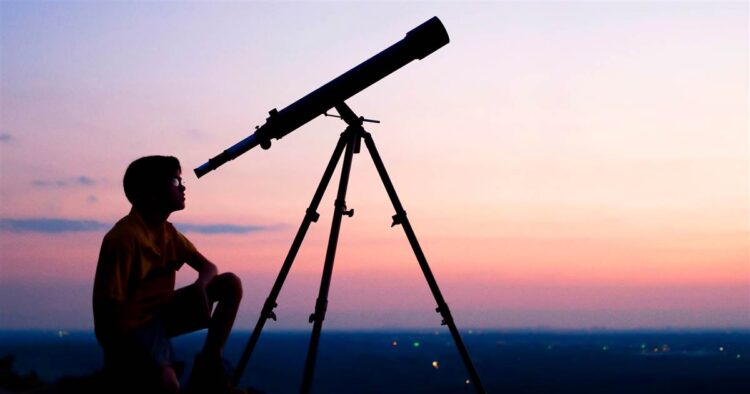
Buying Guide
If you are new to astronomy why not start with a small beginner telescope, like the Celestron Firstscope or the Orion Funscope both have quality optics that produce clear images. Your goal is to get the most viewing ability from the alternative you choose.
Size of the lens:
Size matters when considering the size of the lens. The bigger the instrument, the better is the performance. A minimum of a 3″ refractor or a 4.5″ reflector will not disappoint. The movement will distort the images being viewed. A solid base and mount ensure less movement.
Standard size for eyepieces is 1.25″. 500x magnification is more of an advertising gimmick rather than useful specifications. 50 -125 power is more than enough to show the craters of the moon, the rings of Saturn and even the moons of Jupiter.

Refractor vs. Reflector:
Refractor telescopes are some of the oldest ones available. Made up of concave lenses that allow the light to be refracted and images to appear bright and larger than looking at it with the normal eye the refractor telescope can greatly aid in seeing stars, planets and moons.
A reflecting telescope is an optical pick that uses a single or combination of curved mirrors that reflect light and form an image. For beginners, the refracting telescope is easier to use, compared with a reflecting one—the disadvantage of being a false colour appearing around sited objects. The main advantages of reflecting choices are their cost. Since they use mirrors instead of lenses, they are less expensive to make.
Budget:
Make sure that the option which you are looking forward to buying falls within your budget. Telescopes can be quite costly. However, it is not recommended to begin your astronomical journey with the costliest one. Buy one that fulfils your basic requirements and falls within your budget.
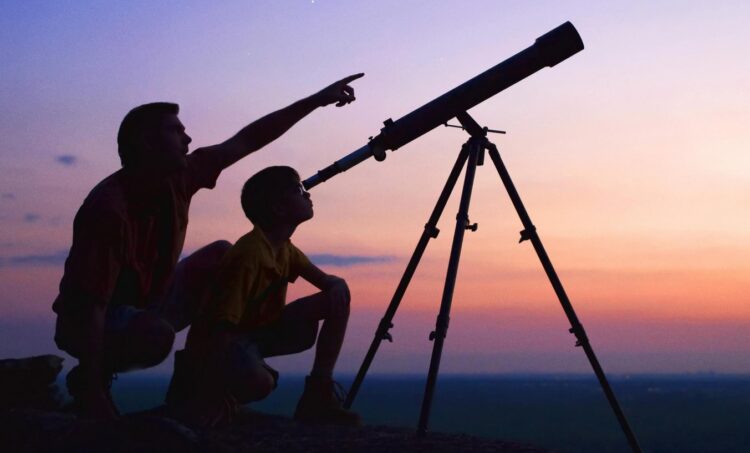
Other Factors to consider:
Consider how easy it is to set up and adjust, and its optical performance. Also, make sure to read product reviews and see what other satisfied customers have to say about the telescope that you are looking forward to buying.
Five best telescopes for astronomy beginners
1. AstroVenture 4.5″ Reflector Telescope
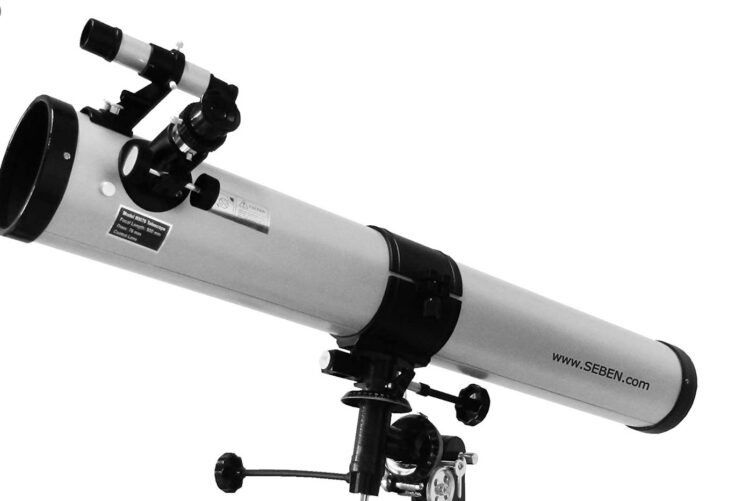
A 4.5″ reflector telescope uses a mirror instead of lenses. The size refers to the diameter of the biggest mirror at the bottom of the telescope. This reasonably priced model will let you look at the moon and planets and is a good starter telescope.
2. Celestron StarSense Explorer DX 102AZ
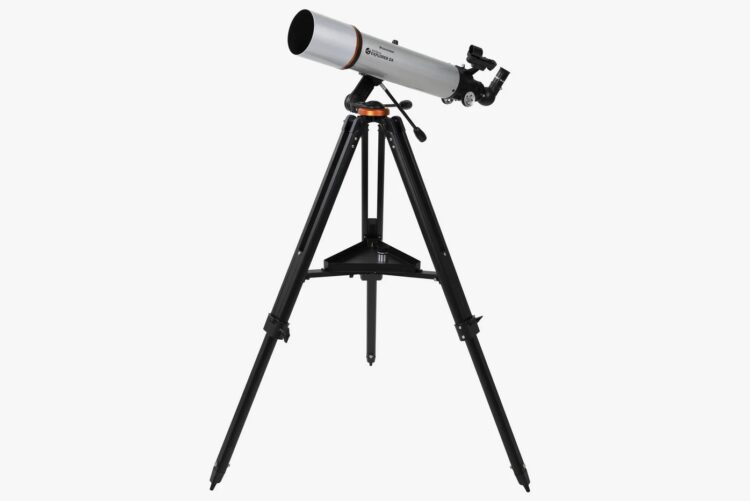
Celestron Telescopes are a favourite among beginner astronomers. They are preferred for their superior optics, user-friendly design, lightweight construction and award-winning customer satisfaction.
3. Orion Observer 80ST
Orion Telescopes have emerged as the foremost source of optical equipment that makes the heavens viewable to all interested stargazers.
4. Zhumell Z100 Portable Altazimuth Reflector Telescope
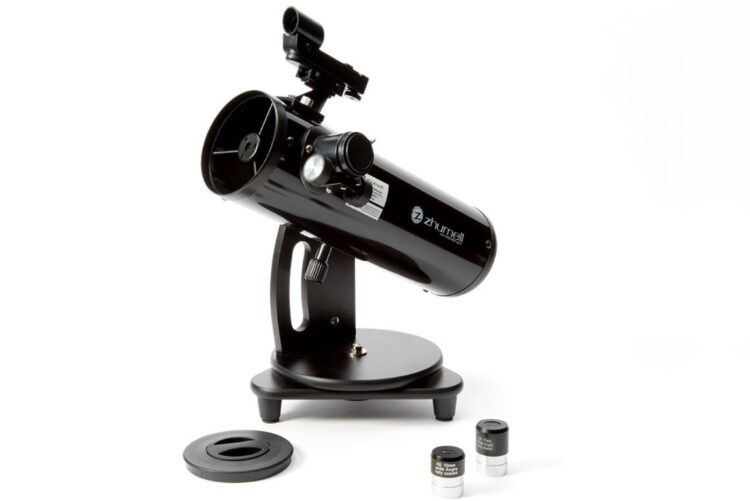
A Dobsonian telescope is an alt-azimuth (up and down, and side to side) mounted Newtonian telescope (reflecting telescope using mirrors) made popular in the 1960s. It’s a simple design, easy to make, low-cost telescope.
5. Celestron 21024 FirstScope Telescope
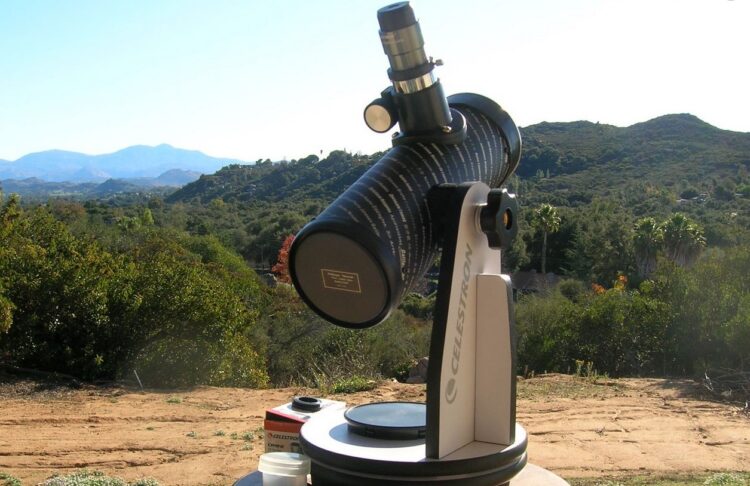
Celestron Firstscope, a beginner telescope is designed for the first time user. It’s compact, durable and portable design makes selecting terrestrial objects as easy as select, point and focus. With this telescope, on a night, you can see about 1000 to 1500 stars.
- Sky-watcher Heritage Tabletop Telescope – This is a lightweight Compact Scope which is very convenient when stored, and easy to move. With it, the user can notice things clearly when the clouds are clear. During the sessions, this can be easily placed at the tabletop of your patio. An effective choice for all astronomy beginners. It will help to build a young astronomer rapidly.
- Bresser Messier Nano Telescope – This alternative is in the size of 3-inches and enables observations of celestial objects to a wide range. It comes with an Altaz mount that is intuitive to use. The emphasis of this telescope is more on materials that are lighter in weight, hence makes it a grab and do instrument. Beginners can have one of the best sky sites with this great instrument. It is also effective in cutting down unwanted light.
Conclusion:
Start by viewing the moon since it is easy to find. Jupiter is the largest planet in the system, so you should be able to find it easily. Venus is the brightest planet and also easy to spot. Saturn is always a neat planet because of the rings that change their angle as the planet orbits the sun.
Get hold of your beginner instrument choice today and start your astronomical journey and witness your favourite planets, stars and constellations. As an informed consumer, do your research and know what you want from the choice as well as how much you are willing to spend and only then buy your first telescope.











